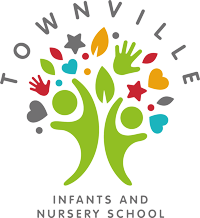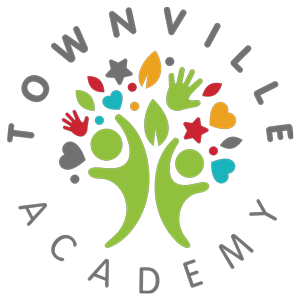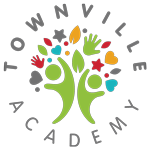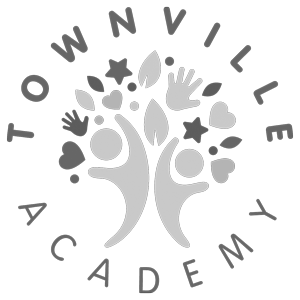At Townville Infant and Nursery School, we aspire to offer the best possible early education for all our children in a happy, safe, inclusive environment.
Through our Computing Curriculum we aim to ensure our Key Stage 1 children:
- have the computing skills they need to cope with technological advances in an ever-changing world.
- understand the terms ‘Computing’ and ‘Technology’
- understand what algorithms are; how they are implemented as programs on digital devices; and that programs execute by following precise and unambiguous instructions
- create and debug simple programs
- use logical reasoning to predict the behaviour of simple programs
- use technology purposefully to create, organise, store, manipulate and retrieve digital content
- recognise common uses of information technology beyond school
- use technology safely and respectfully, keeping personal information private; identify where to go for help and support when they have concerns about content or contact on the internet or other online technologies.
This builds upon the children’s prior knowledge gained through the foundation stage for Computing where children:
- investigate and explore how simple technological hardware such as; I-pads, Interactive whiteboards and Beebots can be manipulated for a purpose.
- learn to interact safely with simple programs
- recognise technology refers to any item which needs electricity to work.
- recognise and name basic ways to keep themselves safe online; recognising who to share concerns with.
As critical thinkers and investigative learners’ children in EYFS are exposed to a range of technology and given opportunity to explore, investigate and test how they can manipulate and impart change upon them to achieve a desired outcome. They learn and are taught how to interact with a range of simple apps, programs and technological devices, handling technology carefully.
In EYFS the children are taught simple ways to keep themselves safe online through explicit e-safety sessions and during PSHE.
In KS1, Computing is taught as a discrete subject and is year group specific. We follow the National Centre for Computing Education ‘Teach Computing’ Curriculum. The Computing curriculum is structured into six units across KS1, these units are based on a spiral curriculum. This means that each of the themes are revisited regularly (at least once in each year group), and pupils revisit each theme through a new unit that consolidates and builds on prior learning within that theme. As topics are revisited, this spiral curriculum enables the children to know more and remember more as it reduces the amount of knowledge lost through forgetting. Each lesson is sequenced so that it builds on the learning from the previous lesson, and where appropriate, activities are scaffolded so that all pupils can thrive and succeed. Learning graphs are provided within each unit and demonstrate progression through concepts and skills.
Every lesson includes formative assessment opportunities for the teachers to use. Teachers use these assessments to adapt their teaching to suit the needs of the pupils. The success criteria of each lesson provide an opportunity for summative assessments. This summative data is collated by the class teacher at the end of each unit and is shared with the Computing lead to inform a judgement on standards and progress – supporting accurate improvement planning to be made where required.
Our Computing Curriculum links both the National Curriculum and the Education for a Connected World Framework. Clearly outlining aspects relating to online safety and digital citizenship. E-safety is also part of our PSHE curriculum here at Townville Infants School.
As a result of our carefully sequenced, planned and taught Computing curriculum, children will:
- have the computing skills they need to cope with technological advances in an ever-changing world.
- understand the terms ‘Computing’ and ‘Technology’
- understand what algorithms are; how they are implemented as programs on digital devices; and that programs execute by following precise and unambiguous instructions
- create and debug simple programs
- use logical reasoning to predict the behaviour of simple programs
- use technology purposefully to create, organise, store, manipulate and retrieve digital content
- recognise common uses of information technology beyond school
- use technology safely and respectfully, keeping personal information private; identify where to go for help and support when they have concerns about content or contact on the internet or other online technologies.
Townville children will meet the end of Key Stage 1 National curriculum outcomes and will have a strong foundation of Digital literacy, Information Technology and Computing Science on which to build and further develop their Computing skills and knowledge.




